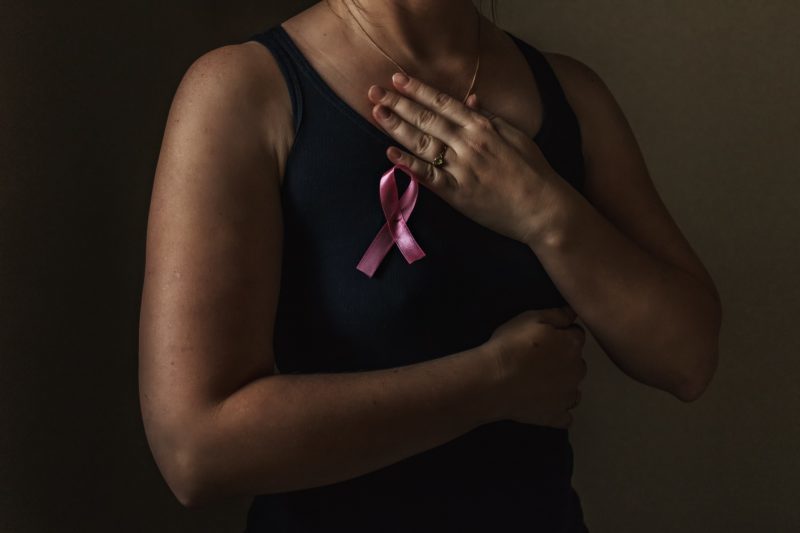Early breast cancer detection saves lives
By Jay Nachman
When it comes to diagnosing and treating breast cancer, older adults have special challenges.
Dr. Kristin L. Brill, the Sidney Kimmel Cancer Center\Jefferson Health’s enterprise director of breast oncology, follows guidelines established by the National Comprehensive Cancer Network for screening, chemotherapy and radiation.
Recommended screening
The network recommends annual breast cancer screenings, called mammograms, starting at 40, for women with average risk. In addition to yearly mammograms, clinical breast exams should be performed routinely during a gynecology visit. Women’s breast self-exams should begin at 40 and continue monthly until a woman’s period has ended.
The end date for stopping screenings is trickier because women are living longer, Dr. Brill said. She recommends women continue screening with mammography as long as their overall health is good, and they have a life expectancy of 10 years or more. Brill discusses discontinuing mammographic screening at about age 75 with her patients but added this is a shared decision-making process between the patient and physician.
On a case-by-case basis, Dr. Brill says, “After a certain age, we talk about a woman’s overall health, risk and age. If a breast cancer were to develop after age 75, it is usually so slow growing that it will probably never amount to anything, And, there’s a risk of overtreatment when biopsying and screening is involved.”
Brill added that the decision (if and when to stop mammograms) should be made in discussion with a woman’s practitioner. Women who are at high risk and healthy at 78, should probably continue screening, she advised.
Breast cancer in men
Male breast cancer is uncommon but does occur in 1% of all breast cancers that are identified annually, or about one in every 100 cases. The rate of male breast cancer is higher (about 8%) in the Ashkenazi population, or among Jewish individuals whose ancestors lived in Central and Eastern Europe. Jewish women also face a slightly higher risk for breast cancer, as do Eastern European men who aren’t Jewish, Dr. Brill said.
According to Dr. Brill, noticeable symptoms in men include a mass, alteration or discharge. Red flags that a man may be at higher risk for breast cancer include a strong family history of breast cancer, pancreatic cancer and Ashkenazi heritage.
Screening barriers
In the African American population, the incidence of breast cancer in women is slightly lower than cancer in white women but survival is lower. Black women tend to be identified with higher risk breast cancers and at younger ages.
“Often we’ll see in the African American population women who have these more aggressive breast cancers that develop before they would be going for an annual screening or just at that point,” Dr. Brill said.
Screening rates are lower in the Latino, Asian and African American communities. “So, there’s been a lot of work done in the last several years on trying to break these screening barriers,” Dr. Brill said.
Research by Dr. Maureen Murphy, program leader of the Molecular and Cellular Oncogenesis Program at The Wistar Institute, reported that there is a rare genetic variant that makes African American women predisposed to developing breast cancer at a premenopausal age.
“This genetic variant is present exclusively in people of African descent, so our study addresses cancer disparities in African American women, a historically under-represented group in research studies,” Dr. Murphy said. “Our results show that the risk of developing breast cancer is increased by nearly 70% in premenopausal women who carry this variant.”
Dr. Murphy and her colleagues conducted statistical studies on a cohort of more than 14,000 women of African descent and didn’t find any association of the variant with increased breast cancer risk overall. The gene variant appears to only increase risk in premenopausal women.
Treatment
There is a tendency to automatically under-treat the older adult population, based on age alone. “Sometimes, family members are reluctant to support chemotherapy for an older relative. And with patients over 75, undertreatment might mean doing a lumpectomy, but not chemotherapy or radiation, when they might be able to tolerate it,” said Dr. Brill.
Older patients “really require more in-depth evaluation and assessing that risk benefit,” Brill said. At Jefferson Health, there is a geriatric oncology program for all cancers. Various specialists look at tumor types, physical status, social supports, nutrition and a multitude of other areas, then make recommendations on how to treat a patient. Dr. Brill hopes “this will put a dent in the tendency to undertreat (older) patients.”
For more information and resources about breast cancer, contact the American Cancer Society at 1-800-227-2345 or go to NationalBreastCancer.org.
Free breast health exams
There are several locations in Philadelphia that offer free or low-cost breast health examinations. Among them are the following.
- FreeMammograms.org/city/pa-philadelphia lists clinics and other facilities that provide free mammograms and other diagnostic procedures for women at little or no cost.
- Esperanza Health Center #1, 2940 N. 5th St., offer a free breast and cervical cancer early detection program through the Pennsylvania Department of Health’s HealthyWoman program. Woman 65 or older who do not have Medicare Part B are eligible for the program. In addition, a woman is eligible for the program if her family’s gross household income is at or below 250% of the federal poverty guidelines. If breast or cervical cancer is detected in an uninsured or underinsured woman through the HealthyWoman Program, free treatment may be available through the Department of Human Services Breast and Cervical Cancer Prevention, and Treatment Program. For information call, 215-302-3600.
- The Hunting Park Health Center, 1999 Hunting Park Ave., is also a participant in the HealthyWoman program. For information, call 1-888-296-4742.
- The Penn Medicine Breast Health Initiative offers free breast cancer screening and diagnostic services to people 40 and older, who are uninsured or underinsured. To learn more or to make an appointment, call 215-454-3217 or go to PennMedicine.org and type “breast health” in the search.
- Fox Chase Cancer Center, in partnership with Flyers Charities, has a Mobile Screening Unit that brings breast cancer screenings into communities. To receive a screening from the Mobile Screening Unit, a woman must be over 40, not have had a mammogram in the past year, and have a prescription from her doctor. Insurance is not required to receive a mammogram on the unit. To learn more about the community screening program, contact Linda Hammell, director of the Community Cancer Screening Program, at 215-728-3554 or by email at linda.hammell@fccc.edu.
Jay Nachman is a freelance writer in Philadelphia who tells stories for a variety of clients.




